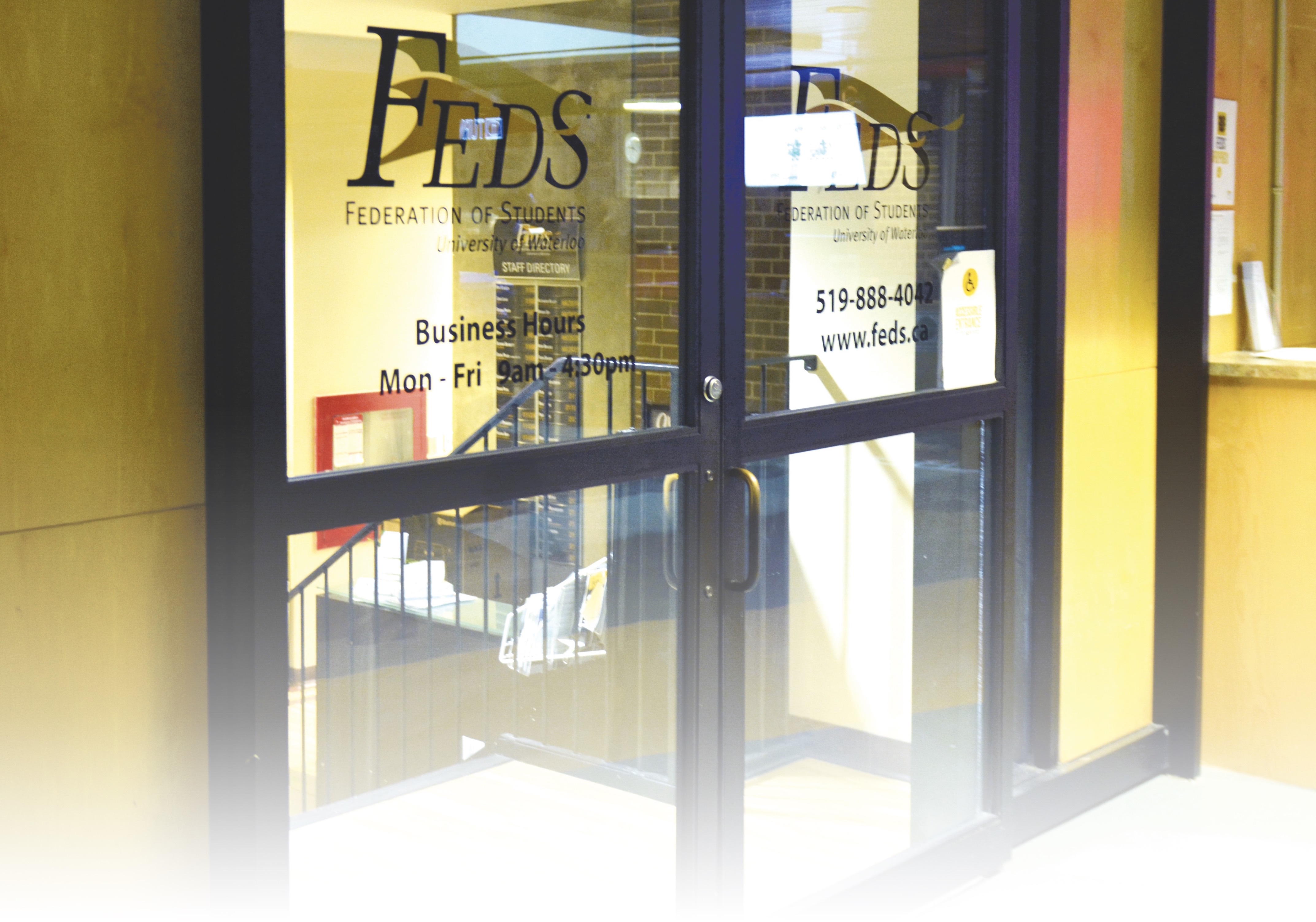In the recent Feds election, a common issue raised by both teams was transparency. This led to several questions from the student population about what transparency really means and what Feds is doing to address these concerns. Imprint asked students and Feds members to weigh in on their thoughts.
What is transparency?
“I can look things up when I want to. The information is easily accessible to me and I don’t need to go through a lot of channels.” – David Yin, debate club executive
“[Transparency is] easy to define and hard to put into practice. It’s letting everyone know what is being done and how it’s affecting them but… practically, transparency really means ‘when something doesn’t go right, how do we let everyone know it’s happening, and how do we let everyone know how it’s being fixed’… Not just staying quiet because no one is asking questions, but actively letting students know what’s happening” – Marcus Abramovitch, science councillor
“The person or organization makes all of the relevant decisions with knowledge that is available to people they’re accountable to.” – Chris Lolas, Feds President
Do you think Feds is transparent?
“Feds is generally pretty good at transparency. [But] they have a lot of stepping up to do in terms of reporting on what they’re doing, especially to students. Feds lives in an insular bubble where [some] people know what is going on but [the] vast majority of students don’t know what is going on today. Feds [needs to be] proactive about [updating] students.” – Abramovitch
“I don’t know. I’m not sure. I don’t keep updated too much about Feds. They probably have social media; whether it’s used or people care about it, I don’t know.” – Erik Van Ees, PASS co-founder
“[Feds is] transparent up until a point, but I fully agree that there are ways [Feds] can improve on transparency.” – Lolas
What can Feds do to improve in terms of transparency?
“There is always room for improvement. I think Feds is doing the best they can right now. Working in a council format, I do know that there is definitely a need to keep things secret, because it’s a little bit difficult to put an idea out in the public if it is not exactly polished yet.” – Joshua Ogden, first-year student
“I think it starts with them acknowledging they need to be better, in terms of letting students know what’s going on and I think it means we need to start putting in place policies; by default things become more open to the public. Not ‘we keep them private until we decide we can release it later.’ Until we have very specific [reasons] why things are not public, we [should] make it public.” – Abramovitch
“[Feds has] gone in the right direction to make our presence more known. I think one of the keys is to focus on orientation so students as soon as they come here they understand what their student union is, what services they provide, why they do the things that they do. In the past [we have tried] to create summaries of the budgets, to give a high level overview of the budget. [We should] try and get more students involved in setting priorities for the organization” – Lolas
How should we try engage or help more students?
“We can give weekly or bi-weekly updates to students in some forms, whether it be through social media or in some other way, but also going out to students and letting them know what’s going on and what needs to be fixed because the average student doesn’t think to pop by the president’s office.” – Abramovitch
“As far as I know, at least for first years students [Feds makes their presence known]. For upper-years they expect you to know what’s available. This might be super explicit but still seems rather confusing.” – Van Ees
“Orientation is, I think, the key. Having a presence [during orientation] and making [first-years] aware of the opportunities that are available to them, whether [it] be getting involved in clubs or the services, getting a part time job at International News, [or] being involved in student council. There are so many different options… it’s difficult to quickly summarize that to a first-year student and say ‘Get involved in this specific thing.’” – Lolas
Why do people not care or understand what Feds does?
“I do think that one of the difficulties we face with getting students to understand what Feds does is that we do such a variety of things, and I’ve had this conversation multiple of times; we run a restaurant in the Bomber, but we also run a used bookstore, and we lobby the federal government and we put on special events. That is such a variety of things that it’s hard to nail down exactly what we do in a short summary and explain to students all the things Feds does.” – Lolas
How should students reach out for help?
“We should first try and direct students to what’s available at their fingertips, whether it’s online or some policy, but generally if students can’t get the answers they’re looking for and they’re still confused using those resources, just send us an email, we will get back to them as quick as we can.” – Lolas
How much transparency should there be?
“There is an important relationship between accountability (literally: the ability to hold decision-makers accountable for their choices in-context) and transparency (unfettered access to context-free information). You can’t feasibly have an unlimited amount of either one, and too much transparency can actually hinder accountability by obfuscating critical info.
The key is to make sure the people we elect in our communities – including student reps – have to regularly give an account of their most important decisions, and to have just enough transparency that you can always independently verify that the things they’re telling us are actually true (while also pointing the way to things they might not be telling us.)” – Sacha Forstner, Senator-at-large































